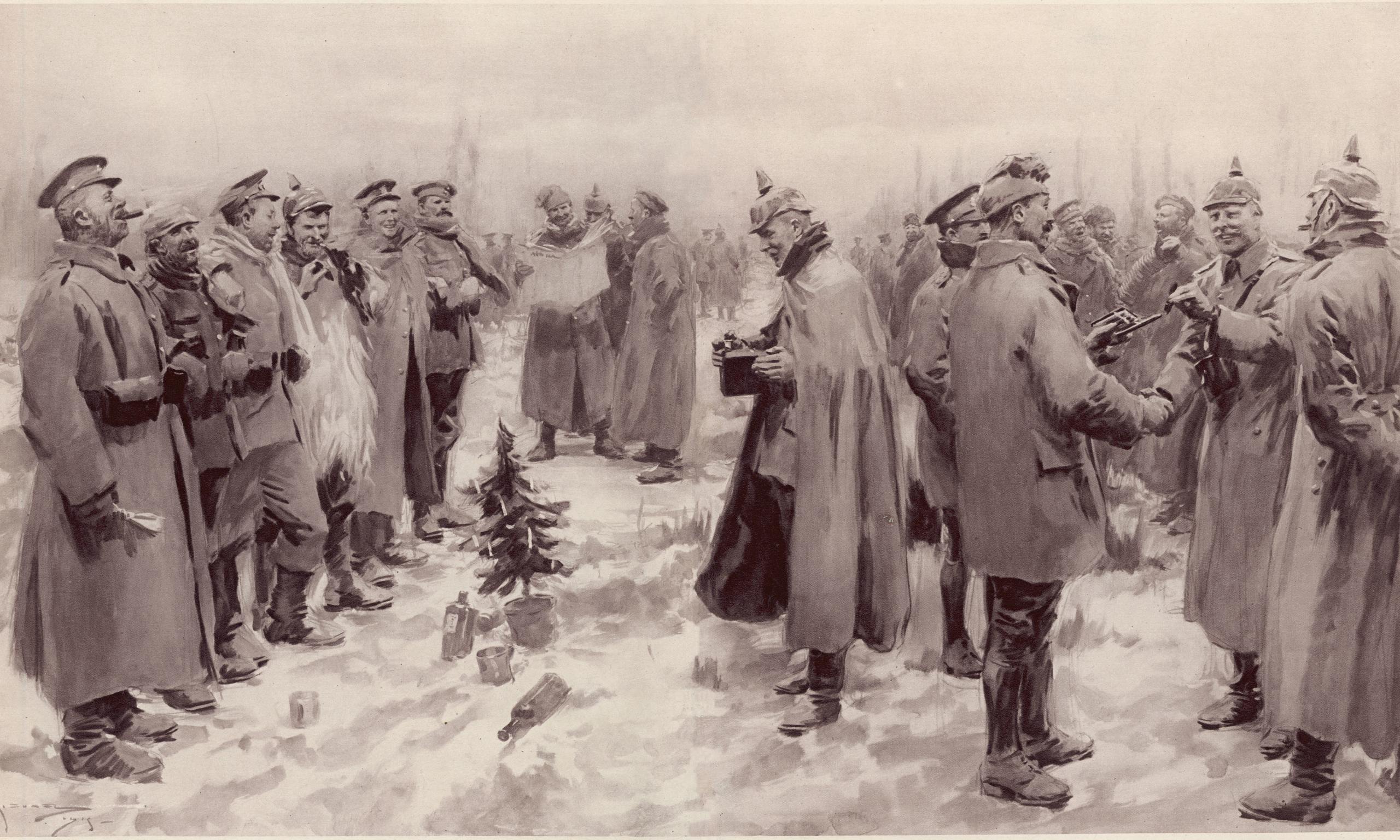12/25/14 #1: A Highly Improbable Peace
Today is the hundredth anniversary of the World War I Christmas Truce, where a hundred thousand German and Allied soldiers left trenches, ventured into no-man's-land, played football, and sang carols.

This year, one of the speakers at the university Carols Services mentioned this fact, and attendees were provided with both English and German lyrics, to sing their choice. The resulting mess didn't have much in the way of distinct words, but the tune was unmistakeable and powerful, and there was something profoundly humbling about singing it in the Memorial Church, erected in honor of the men who gave their lives in that war and the next.
(Crimson photo gallery of the service -- you can spot the back of my head in the first photo if you look hard.)
There's something otherworldly about the idea, isn't there? -- that there was a day of the year where (literally) mortal enemies could treat each other as humans. Do you think that the warriors of the right and the left could keep such a peace in the battlegrounds of Facebook and Twitter today?
I can hope, but I can't hope confidently...
And, strangely enough, we're also currently in the hundred-and-fiftieth anniversary of the American Civil War (We're 100 years from WWI and only 150 from the Civil War? What?), which drove Longfellow to write: "It was as if an earthquake rent the hearth-stones of a continent... There is no peace on earth... for hate is strong, and mocks the song of peace on earth, good will to men."
But of course, that's not the end of the poem, which reads in full:
I heard the bells on Christmas Day Their


